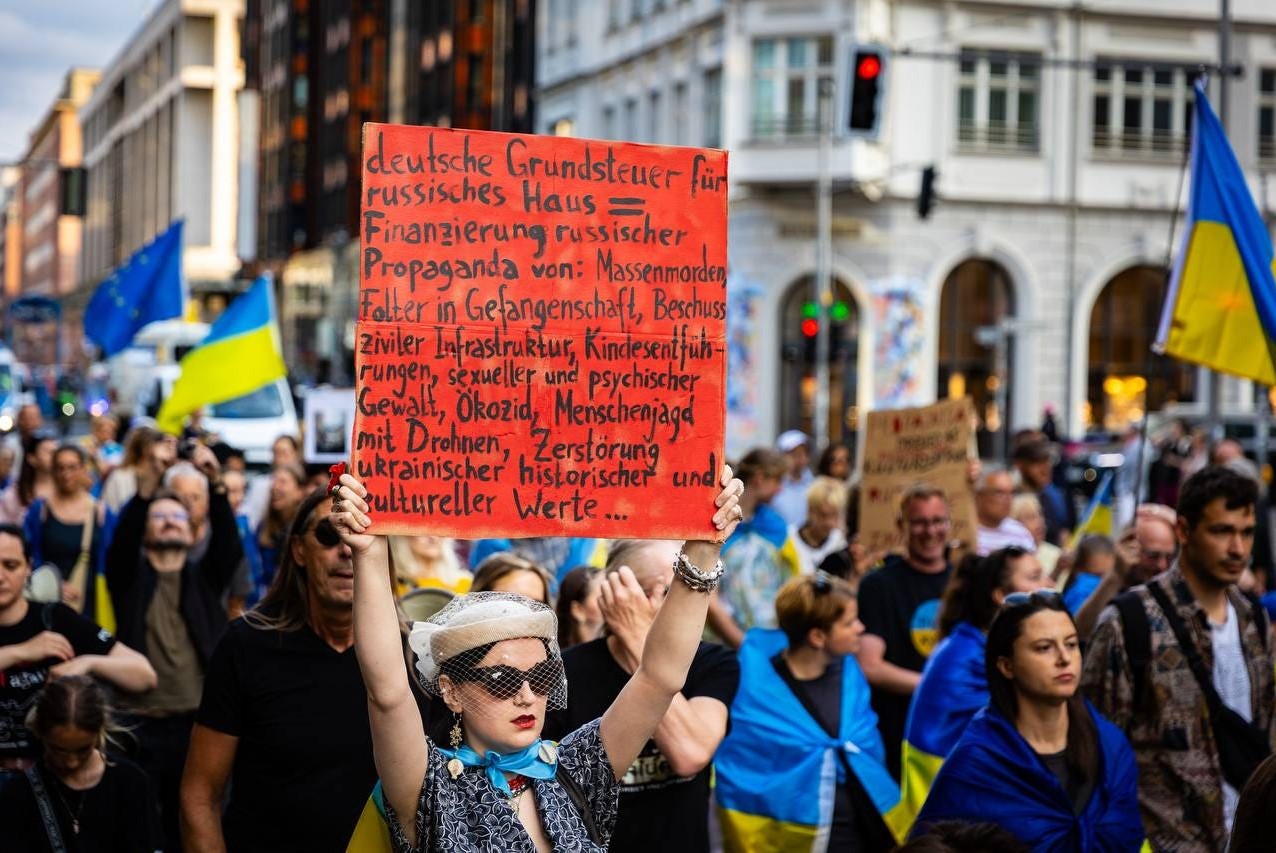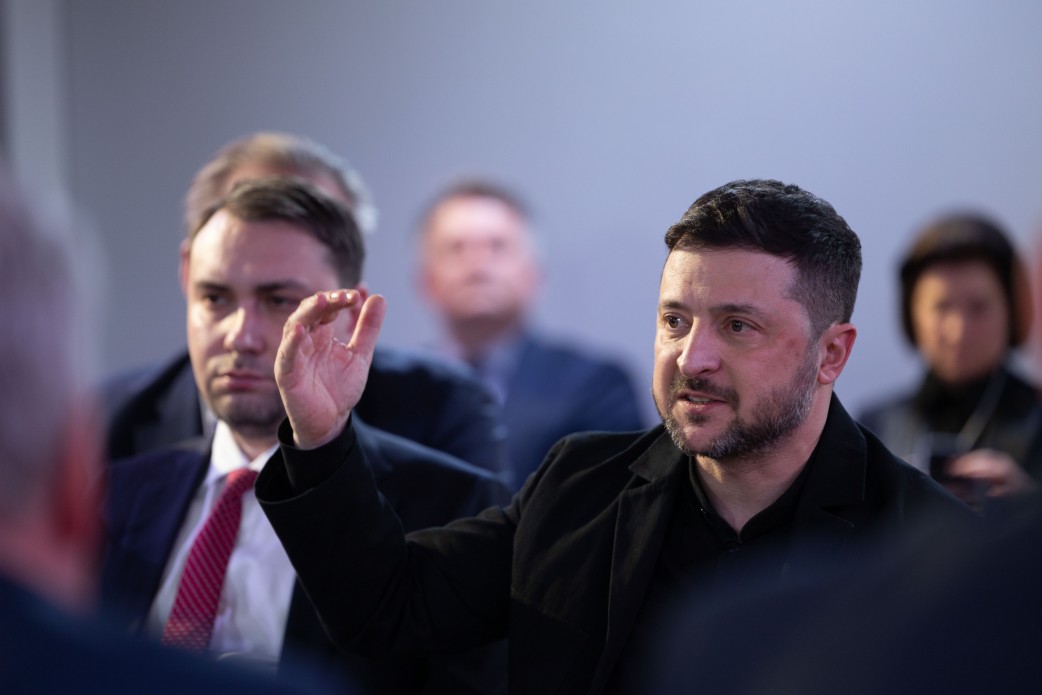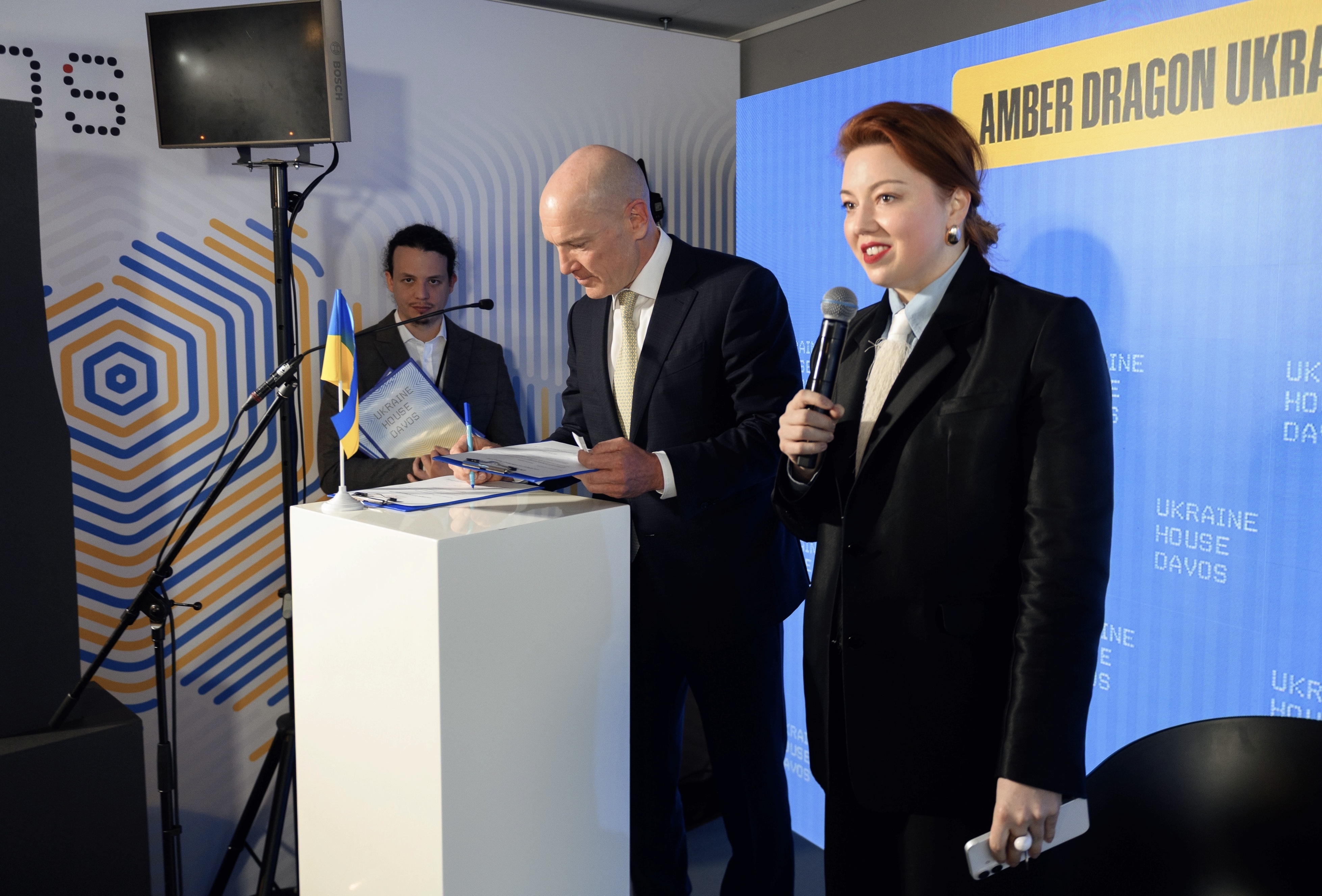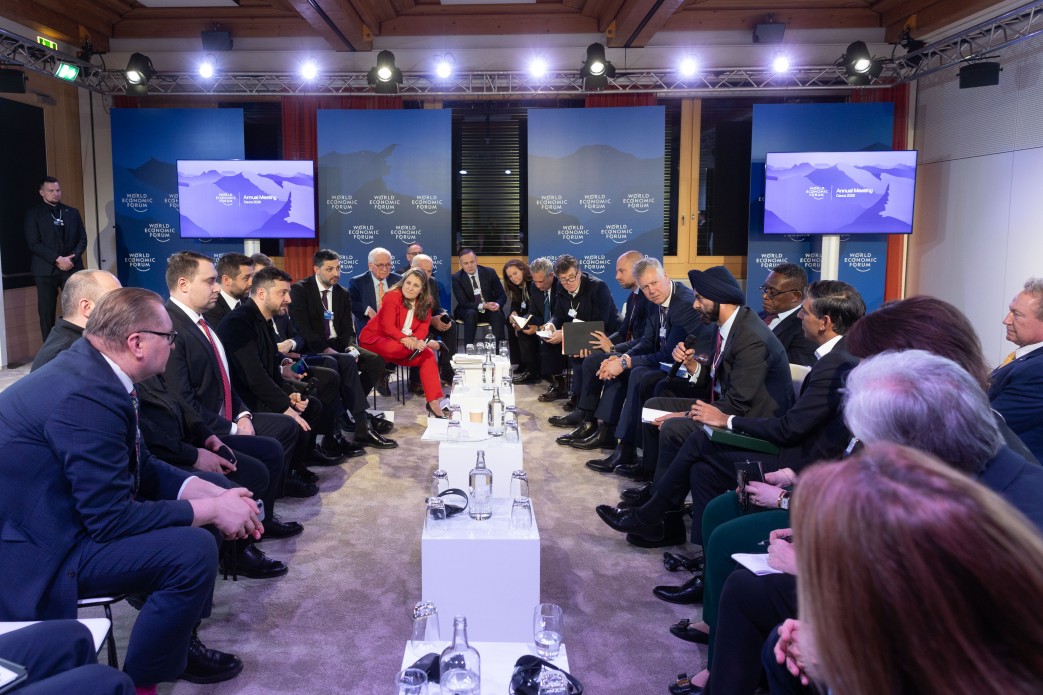Main image: Ukrainian activists rally for the closure of the Russian House in Berlin on June 25, 2025. Photo by Santiago Rodrigues
The Kremlin is promoting propaganda through "Russian Houses" in the U.S. and Europe, targeting youth with programs disguised as cultural exchanges. These Russian cultural centers operate worldwide, including in Washington, D.C., where—despite promoting Kremlin ideology and concealing Russia’s crimes in Ukraine—they function tax-free due to their diplomatic status, according to Counteroffensive.
Around the same time several Ukrainian families were mourning relatives killed in a massive Russian airstrike in late May, about a dozen American students gathered in D.C. to watch a Kremlin propaganda film. Students from East Central University in Oklahoma visited the U.S.-Russian Cultural Center, where they viewed The Big Three – Leaders of World War II, aired on the Kremlin-controlled Russia Today channel. The center is considered an extension of the Russian Embassy, exempt from paying property taxes, as noted by the U.S. State Department.
Such events are alarmingly frequent: while Putin’s army continues to kill Ukrainian civilians, Russia abuses its diplomatic status to operate a propaganda machine in democratic countries. The U.S. isn’t alone—“Russian Houses” also operate in Europe. For instance, the one in Berlin has repeatedly sought to discredit Ukraine. In October 2022, it screened The Holocaust: Threads of Memory, portraying Ukrainians as Nazis—a film produced by Russia Today, which is banned in Germany.
Social media posts show that children and teens attend these events. Rossotrudnichestvo, the Russian state agency that manages "Russian Houses" globally, is under EU sanctions, yet Germany has not shut down the center due to a bilateral agreement: Russia hosts Germany’s Goethe Institute in Moscow, and in return, Germany hosts the Russian House in Berlin. As a result, Germany continues to pay approximately €70,000 annually in property taxes for the Russian cultural center.
Ukrainian activists have protested the Berlin center. Iryna Shulykina, a Ukrainian living in Germany and head of the organization Vitsche since 2022, led a June 25 demonstration against the Russian House. She called it not a cultural institution, but a propaganda platform that openly violates EU sanctions and accused Germany of subsidizing Russian imperialism while Ukrainian cities face bombardments, torture, and deportations.
In 2023, German Green Party politician Volker Beck filed a complaint against the Russian House for spreading propaganda. However, the investigation into its diplomats was suspended due to Russia’s diplomatic immunity. Berlin’s Prosecutor General’s Office is still investigating potential violations of trade and financial laws.
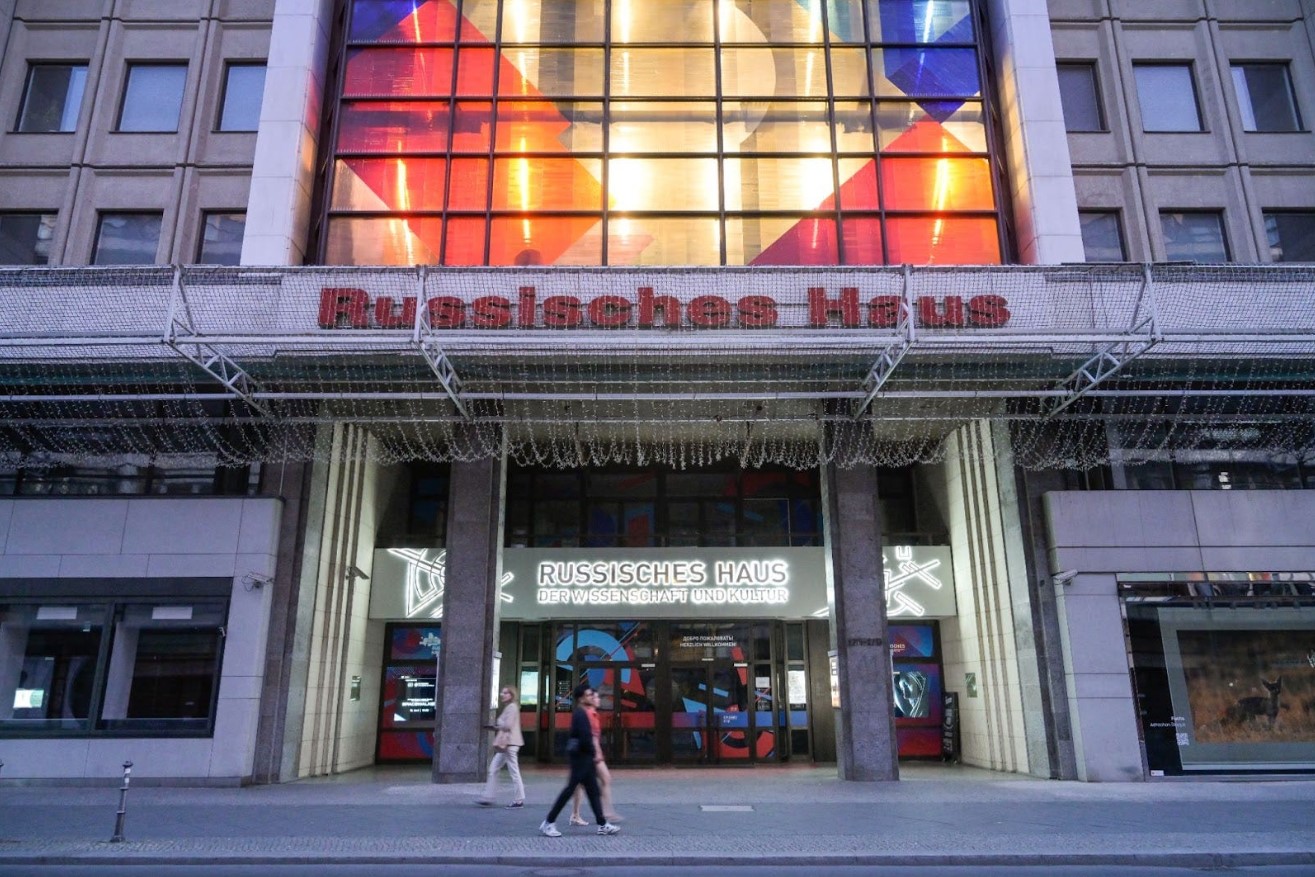
According to Rossotrudnichestvo, “Russian Houses” currently operate in about 71 countries, including Washington, New Delhi, Beijing, and Tokyo. However, centers in North Macedonia, Croatia, and Montenegro have closed, while operations in Romania and Slovenia are suspended indefinitely. The center in Azerbaijan has shut down, and Moldova is preparing to do the same.
Despite sanctions, Rossotrudnichestvo continues to run these centers, organizing events to promote Kremlin ideology among Western youth. For example, the Russian House in Paris sent four French teenagers (aged 15–17) to a state-run camp in Russia after the full-scale invasion. The underlying goal: to foster positive attitudes toward Russia so the teens return home echoing pro-Kremlin views, including justifications for the war in Ukraine.
While innocent lives are lost daily in Ukraine, “Russian Houses” work quietly to legitimize Russia’s invasion. Counteroffensive’s investigation reveals that many center directors are trained operatives from the Kremlin’s central apparatus.
Rossotrudnichestvo is a federal executive agency under Russia’s Ministry of Foreign Affairs. It is headed by Yevgeny Primakov Jr., the grandson of former Russian Foreign Minister Yevgeny Primakov (born in Kyiv), who led Russia’s foreign intelligence service in the 1990s. Primakov Jr., a close Putin ally, acted as a campaign representative in the 2018 presidential election.
Officially, “Russian Houses” aim to "enhance Russia’s humanitarian influence globally." In reality, they serve as soft power tools—using culture and media appeal instead of force. Primakov has emphasized their role in spreading Kremlin narratives about the “special military operation” in Ukraine.
These centers continue to function in the EU, often as part of diplomatic missions or bilateral cultural agreements, like that between Berlin and Moscow. While they focus on youth, they target all age groups. The Paris center offers Russian language, art, gymnastics, and singing classes for children. Yet among the choir’s songs is The Last Battle, glorifying war deaths for Russia, written by poet Mikhail Nozhkin, a vocal supporter of Putin’s invasion who labels Ukrainian soldiers “fascists.”
A stark example of this soft power strategy is the People of Artek program. In 2024, children from Australia, Germany, Turkey, and France were invited on a free three-week trip to the Artek youth camp in Russian-occupied Crimea. The program included a “Russia Day,” a performance by a State Duma deputy, and propaganda promoting “friendship of nations.” Though the Paris Russian House has since removed mention of the program, archived content confirms its existence.
These seemingly fun holidays bind young participants emotionally to Russia, spreading Kremlin narratives. Many return praising Russia and embracing the Russian language—evidence of the propaganda's impact.
In 2025, Oklahoma students at the Russian Cultural Center in Washington received a film filled with questionable claims about Stalin and Western leaders. Young people are also influenced via social media, where the center posts Russia Today videos defending the occupation of Crimea and glorifying Russian soldiers as “defenders of Donbas.”
Experts warn that such influence campaigns can destabilize democracies. The Kremlin is using cultural centers as soft-power weapons to advance its geopolitical goals—shaping the next generation abroad, funded in part by taxpayers in democratic nations.









